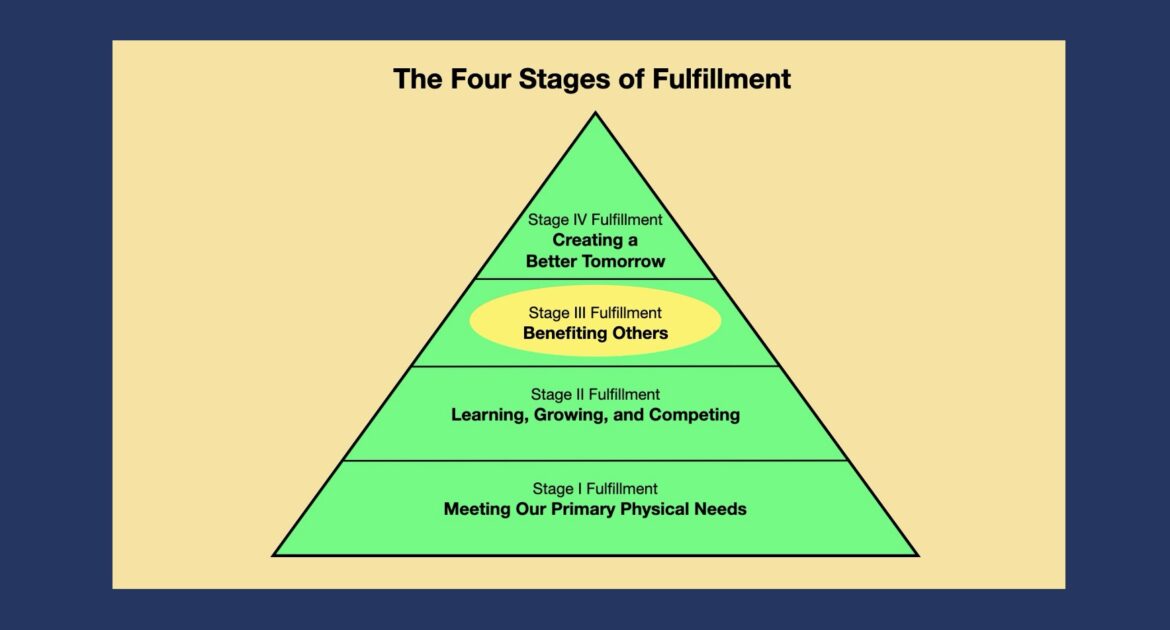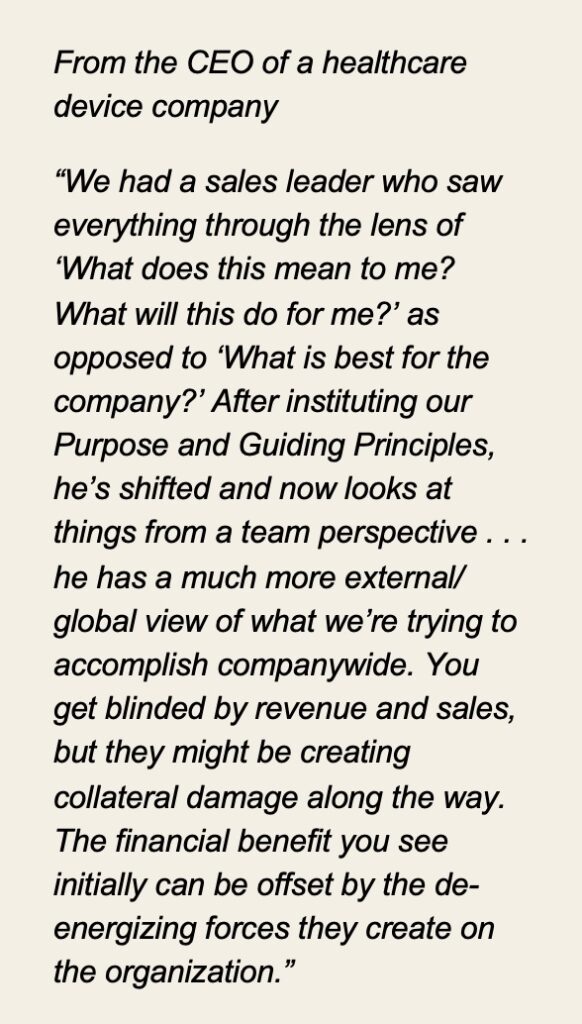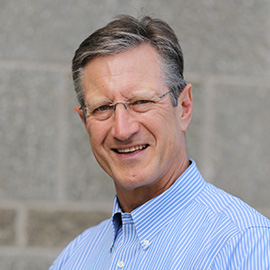Stage III Fulfillment: Benefiting Others

In this fifth post in our series on the Four Stages of Fulfillment, we explore Stage III and its connection to our sustainable Purpose in life.
Stage III Fulfillment: Benefiting Others
Stage III Fulfillment is enjoyed by mature individuals who feel a strong sense of responsibility for the welfare of others. We see young people demonstrating advanced maturity in the service of others. We see college students showing maturity in choosing to study professions like teaching and medicine to serve their communities. Most of us begin to be more motivated to live at Stage III, receiving joy from helping others around ages twenty-five to thirty-five.
In Stage III, fulfillment is felt as a result of supporting and enabling others to accomplish and succeed. Efforts as a parent, coach, or mentor may not yield fruit right away—it can take years or decades for the benefits of our efforts to be realized. Regardless of the effort, those being supported feel cared for right away, helping them feel like they belong, are cared about, and are safe. This generates the hormones serotonin and oxytocin, resulting in feelings of safety and security. Those doing the supporting work feel the positive impact of their intentions, as they feel their contribution to the benefit of another. They, too, receive the benefits of oxytocin and serotonin when they support others. The good feelings from this process make it easier for mature individuals to continue to support others. The energy at Stage III Fulfillment can become generative.
Ari Weinzweig, one of the founding partners in the legendary Zingerman’s Family of Businesses in Ann Arbor, provided an example of Stage III Fulfillment when I was at lunch with one of our clients. Our client owned hotels and restaurants, and we wanted him to experience the flow that comes from the shift from me to the team that Zingerman’s exemplifies. Ari came over and asked how our lunch was, and proceeded to remove our dishes and wipe the table. When I shared that the busser was one of the founding partners of an organization with more than $65 million in sales, my client refused to believe it. This team-focused approach begins with leadership and permeates Zingerman’s because of exemplary Stage III leadership.
Having a Purpose that contributes to the benefit of others is critical in creating the energy needed for sustainable success as a team, in business, and in life. Stage III Fulfillment utilizes the competencies built in Stage II but uses them to serve others.
Stage III Fulfillment Attributes
- The primary impact is on others.
- Our understanding begins most often in adulthood, at ages twenty-five to thirty-five; women tend to get it before men.
- At this stage, we are energized to serve and care for others.
- The fulfillment is delayed, taking hold years after our actions, when the fruits of our labors surface in others, and it lasts years, perhaps decades.
- Work done at this stage is deeply impactful on society.
- The exemplars are police officers, educators, medical professionals, and those who are motivated to see others thrive.
Our sustainable Purpose in life resides in Stage III Fulfillment. You can look to those who have meant the most to you, those you admire and respect in your life, to see their Stage III Fulfillment in action.
Energized by Stage III Fulfillment
We see examples of Stage III Fulfillment in parents becoming responsible for the growth and development of their children. We see it in people who choose to do volunteer work to help others. We see it every time someone steps up to help a neighbor in need. We see it when people organize relief efforts after a natural disaster. We also see it in the way people choose to be of service in their work—regardless of their field. We see employees who consistently choose to support their co-workers. We’ve encountered workers who see interactions with customers as an opportunity to spread joy. And these people are willing to question leadership when something looks harmful to employees or their customers.

We help clients reveal the Stage III Fulfillment-focused Purpose of their organization. It can be challenging to explain to some business leaders that working in the service of others is fundamental to building a thriving enterprise. Who can blame them? Classical economic theory has maintained that humans are selfish and, when given a choice, act in their self-interest. This old tenet of economic theory is present as a strand in the DNA of most organizations. Work is set up as a series of quid pro quo arrangements. When we do what is expected of us, we are told that there will be commissions, bonuses, and better pay. Too often, we are set up to compete against co-workers to prove who most deserves to climb the ladder.
This belief in the fundamental selfishness of humans is not backed by science. On the contrary, left to our own devices, we most often act in the best interest of our community. As it turns out, we are not most fulfilled by motivators prevalent in Stage II Fulfillment (learning, growing, and competing), as we’ve been taught to believe, but by a deep and meaningful service-oriented Purpose. A Purpose reflected in a Stage III pursuit of fulfillment that ultimately leads to Stage IV Fulfillment—creating a better tomorrow—by enhancing greater safety and security for our community.
#ShiftFromMeToTeam #FourStagesOfFulfillment #Purpose






